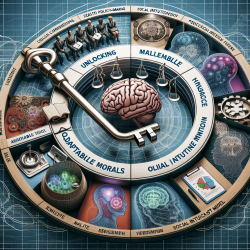Understanding the Impact of Childhood Experiences on Mental Health
As a practitioner in the field of mental health and education, understanding the profound impact of childhood experiences on adult mental health is crucial. Recent research titled "Adverse and benevolent childhood experiences among adults in the United Kingdom: a latent class analysis" sheds light on how these experiences shape psychological outcomes.
The Study: Unveiling Childhood Experience Classes
The study conducted a latent class analysis (LCA) on two UK-based samples to identify distinct classes of childhood experiences. It categorized experiences into four classes:
- Class 1: Moderate Adverse Childhood Experiences (ACEs) and High Benevolent Childhood Experiences (BCEs)
- Class 2: High ACEs and Moderate BCEs
- Class 3: Low ACEs and High BCEs
- Class 4: Low ACEs and Moderate BCEs
Classes with high BCEs were generally associated with lower levels of psychological distress and suicidal thoughts and behaviors (STBs), affirming the protective role of positive childhood experiences.
Implications for Practitioners
Understanding these classes can guide practitioners in tailoring interventions. Here’s how:
- Identify Risk: Recognize individuals with high ACEs and moderate BCEs as at-risk for psychological distress and STBs.
- Leverage BCEs: Use BCEs as a therapeutic tool to mitigate the effects of ACEs, aligning with Resiliency Theory which posits that positive experiences can buffer against negative outcomes.
- Comprehensive Assessment: Incorporate assessments of both ACEs and BCEs in clinical evaluations to develop holistic treatment plans.
Encouraging Further Research
While this study provides valuable insights, it opens the door for further exploration. Practitioners are encouraged to delve deeper into how specific types of BCEs can be integrated into therapeutic practices to enhance resilience and mental well-being.
To read the original research paper, please follow this link: Adverse and benevolent childhood experiences among adults in the United Kingdom: a latent class analysis.










